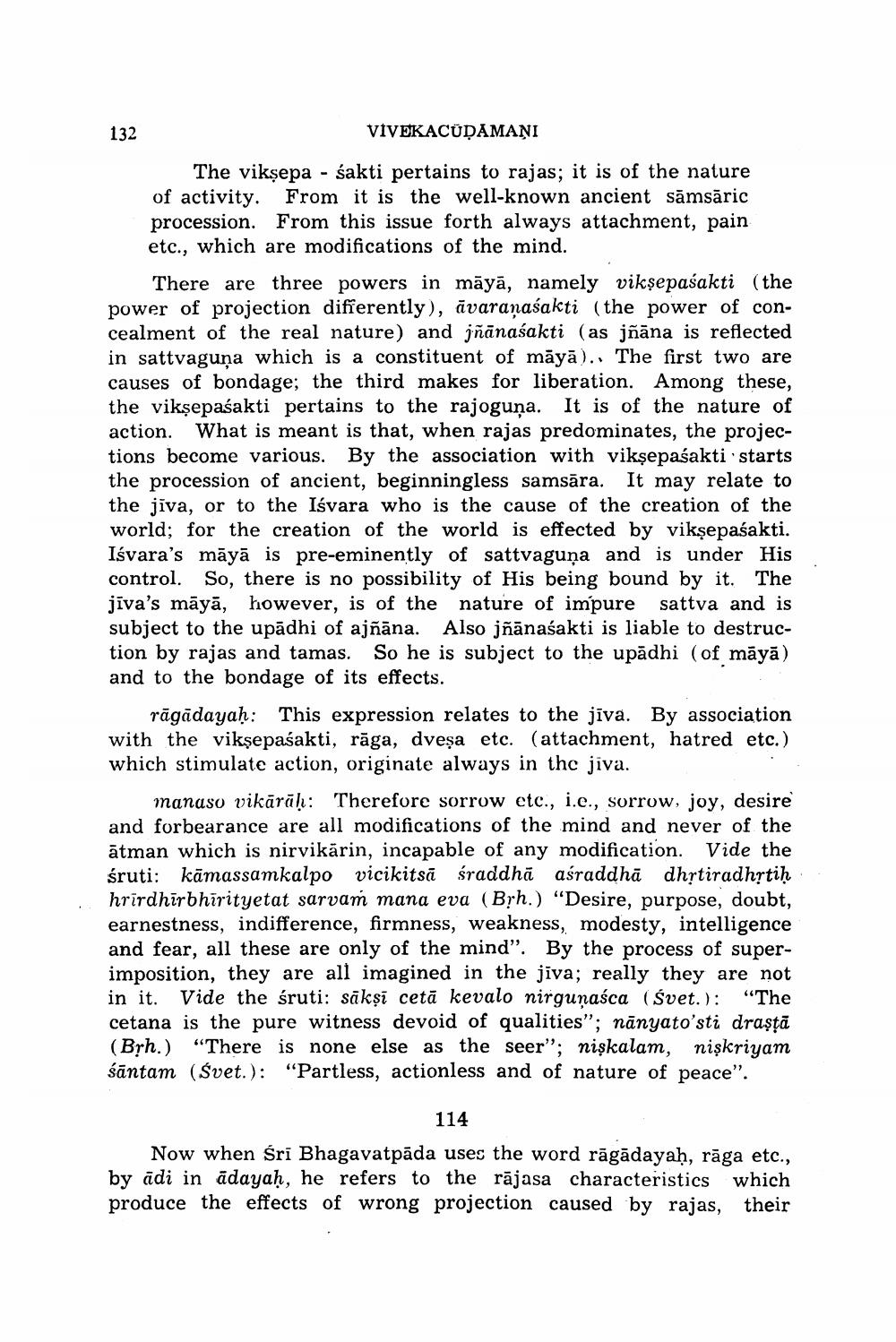________________
132
VIVEKACUDAMAŅI
The viksepa - sakti pertains to rajas; it is of the nature of activity. From it is the well-known ancient sāmsāric procession. From this issue forth always attachment, pain etc., which are modifications of the mind.
There are three powers in māyā, namely viksepaśakti (the power of projection differently), avarañaśakti (the power of concealment of the real nature) and jñānasakti (as jñāna is reflected in sattvaguna which is a constituent of māyā).. The first two are causes of bondage; the third makes for liberation. Among these, the vikṣepaśakti pertains to the rajoguņa. It is of the nature of action. What is meant is that, when rajas predominates, the projections become various. By the association with viksepasakti 'starts the procession of ancient, beginningless samsāra. It may relate to the jiva, or to the Isvara who is the cause of the creation of the world; for the creation of the world is effected by viksepasakti. Isvara's māyā is pre-eminently of sattvaguna and is under His control. So, there is no possibility of His being bound by it. The jiva's māyā, however, is of the nature of impure sattva and is subject to the upādhi of ajñāna. Also jñānasakti is liable to destruction by rajas and tamas. So he is subject to the upādhi (of māyā) and to the bondage of its effects.
rāgādayaḥ: This expression relates to the jiva. By association with the vikṣepaśakti, rāga, dveșa etc. (attachment, hatred etc.) which stimulate action, originate always in the jiva.
manaso vikārāh: Therefore sorrow etc., i.e., sorrow, joy, desire and forbearance are all modifications of the mind and never of the ātman which is nirvikärin, incapable of any modification. Vide the śruti: kāmassamkalpo vicikitsā sraddhā aśraddhā dhrtiradhịtih hrirdhirbhirityetat sarvam mana eva (Bșh.) "Desire, purpose, doubt, earnestness, indifference, firmness, weakness, modesty, intelligence and fear, all these are only of the mind”. By the process of superimposition, they are all imagined in the jiva; really they are not in it. Vide the śruti: sākşi cetā kevalo nirgunaśca (svet.): "The cetana is the pure witness devoid of qualities”; nānyato'sti drașțā (Brh.) “There is none else as the seer"'; nişkalam, nişkriyam śāntam (Svet.): "Partless, actionless and of nature of peace".
.
114
Now when Sri Bhagavatpāda uses the word rāgādayaḥ, rāga etc., by ädi in ādayaḥ, he refers to the rājasa characteristics which produce the effects of wrong projection caused by rajas, their




